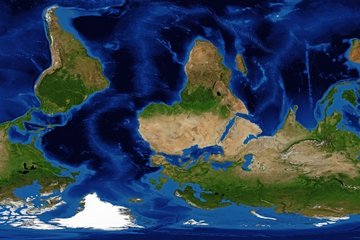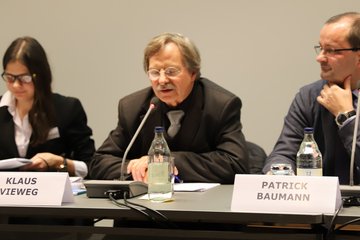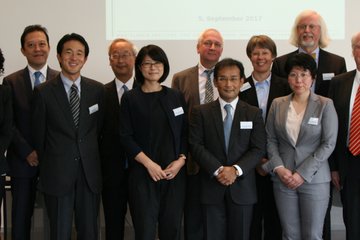Prof. Dr. Béligh Elbalti (Osaka University): Enforcement of Foreign Judgments in the Maghreb Countries – Special Focus on Civil and Commercial Matters
Internationales Privatrecht in Afrika
- Datum: 25.05.2022
- Uhrzeit: 14:00
- Ort: Online-Veranstaltung
About the topic:
Professor Elbalti’s presentation and the discussion that followed focused on the enforcement of foreign judgments in civil and commercial matters (with the exclusion of family law) in three Maghreb Countries, namely Morocco, Algeria, and Tunisia.
- Finality is the first common requirement. More specifically, judgments need to be final and conclusive. This is explicitly mentioned in Morocco (Article 431(3) CCP and Algeria (Article 605(2) CCAP). In contract, in Tunisia, there is no express reference to the finality of foreign judgments; however, courts usually require that the foreign judgment be final and conclusive.
- The second common requirement is the jurisdiction of the foreign court. This requirement is explicitly required in Morocco (Article 432(2) CCP) and Algeria (Article 605(2) CCAP). However, Professor Elbalti highlighted that the standard used to examine the jurisdiction of the foreign court is not clear. In Tunisia, the jurisdictional control is limited to cases that fall within the exclusive jurisdiction of Tunisian courts. Nevertheless, the prevailing opinion in the literature is that except for exclusive jurisdiction cases, the jurisdiction of the foreign court should also be examined. The Tunisian Supreme Court has affirmed that opinion (Rulings No. 19093 of 3 December 2015, and No. 25687 of 20 January 2016). Furthermore, choice of court agreements in favor of a foreign court are valid in Morocco and Tunisia, but not in Algeria. In Tunisia, judgments rendered by the chosen foreign court can be enforced (Supreme Court Ruling No. 55204 of 24 September 2018; Rule No. 62953 of 28 November 2018). They are also likely to be enforced in Morocco.
- A third common requirement is reciprocity: It is explicitly required in Tunisia. In Algeria, reciprocity is required only with respect to judgment concerning oil pollution damages (Article 145 of the Maritime Code). In Morocco, in contrast, there is no reference to reciprocity, except in Article 19 of the Dahir (Royal Decree) of 12 August 1913 on the Civil Status of French Nationals and Foreigners in Morocco. In practice, however, Moroccan courts usually do not consider reciprocity as a requirement for foreign judgment enforcement (Moroccan Supreme Court Ruling No. 1/50 of 28 January 2014). The Tunisian Supreme Court has ruled that there is a presumption in favor of reciprocity by placing the burden to show the absence of reciprocity on the party resisting enforcement (Ruling No. 6608 of 13 March 2014).
- Additional common requirements include inconsistency of judgments (Algeria: Article 605(3) CCAP; Tunisia: Article 11(2) CPIL; Morocco: Admitted in case and literature), executory nature of the judgment (explicitly required only in Tunisia), Fraud (not explicitly required in the three countries, but admitted in case law in Tunisia (Tunis Court of Appeal, Ruling No. 22715 of 22 February 2006)), and applicable law (not explicitly required in the three countries, but addressed under the cover of public policy).
Finally, although there is no legal obstacle against a possible ratification of the Hague Judgments Convention on the Recognition and Enforcement of Foreign Judgments (the Convention), the utility of the Convention can be doubted in the case of the abovementioned Maghreb countries since the domestic regime of those Maghreb countries is rather liberal (or even more liberal than the Convention). Moreover, there is an extensive and overlapping network of regional and bilateral conventions involving those Maghreb countries. On the one hand, with respect to jurisdictions with which Maghreb countries have no international convention (such as the United States or Japan), there is no incentive to join the Convention since the enforcement regimes are already quite liberal. On the other hand, as to jurisdictions having restrictive regimes (Indonesia, Thailand, etc.), the Convention could be helpful. However, the practical need of such convention is not sure since the Maghreb countries do not have significant commercial ties with those jurisdictions.
About the speaker:
Prof. Dr. Béligh Elbalti is an associate professor at the Graduate School of Law and Politics – Osaka University where he teaches, inter alia, Japanese law, comparative law, Islamic family law a and private international law. He is a holder of a Master’s in Law degree in Common Law Studies obtained in Tunisia. Since 2008, he has been established in Japan where he continued his advanced studies in the field of Private International Law and earned, in addition to another Master’s in Law degree in Legal Studies in 2011 his Doctor of Law Degree at the Graduate School of Law – Kyoto University on the theme of the liberalization of the recognition and enforcement of foreign judgments in 2014. He is the author of a number of scientific articles and case notes mainly in the field of private international law. His research, which is based on extensive comparative approach, focuses on the development of private international law at a national level and international level, especially Asia and the MENA (Middle East and North Africa) region.
About the virtual workshop series:
There is a growing interest in the study of private international law in Africa. In an environment of growing international transactions in both civil and commercial matters, private international law can play a significant role in Africa in addressing issues such as globalization, regional economic integration, immigration, etc. The series intends to discuss new scholarly work on private international law in Africa and advance solutions on how the current framework of that field can be improved on the continent.











